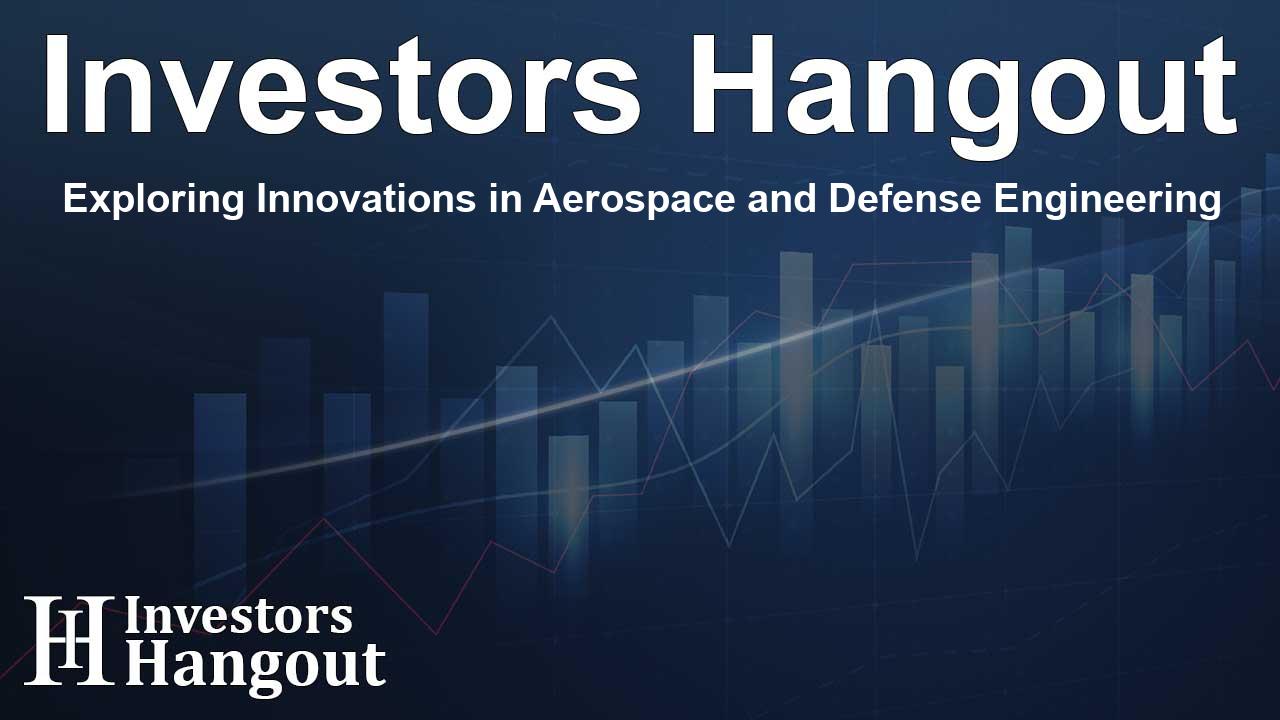Exploring Innovations in Aerospace and Defense Engineering

Redefining Aerospace and Defense through Innovation
Molex, a global leader in electronics and connectivity solutions, has launched a detailed engineering report that delves into the technology innovations, current trends, and career opportunities shaping the aerospace and defense sector. This comprehensive survey highlights how rapid advancements in artificial intelligence (AI) and the push for open standards are not only transforming the industry but are also creating a dynamic environment for engineering teams to thrive.
Key Findings from the Survey
The survey gathered insights from over 1,000 professionals with direct responsibilities in engineering, including design engineers and management leaders within aerospace and defense companies. Respondents underscored several key themes that are expected to shape the future of design engineering in this field:
1. The Impact of AI on Engineering
AI is at the forefront of the transformation in aerospace design engineering. Around 86% of participants believe AI-assisted design capabilities are crucial for their future success. The benefits cited by engineers include enhanced creativity (60%), cost efficiency (53%), better testing scenarios (45%), and improved security measures (44%). Interestingly, despite the high adoption rates of AI tools, there remains a significant concern about their potential drawbacks, with 43% of users expressing serious apprehensions.
2. The Significance of Open Standards
Open standards have found a positive reception among industry professionals, with 94% recognizing their importance. While 39% indicated full implementation, a majority are still either beginning to adopt or actively researching open systems. Such standards, particularly the Modular Open Systems Approach (MOSA) and Hardware Open Systems Technologies (HOST), are considered essential frameworks for future-proof designs.
Challenges Engineers Face Today
The aerospace and defense landscape is not without its challenges. Increased power requirements and security demands have been identified as key pain points affecting the engineering teams. Survey participants highlighted how these pressures influence their work and noted that the design field will be shaped by AI integration, cost-reduction strategies, and the need to operate under increasingly demanding conditions.
Security and Reliability as Top Concerns
Security and reliability remain crucial for engineers, with many expressing worry about their firm's reputation. A staggering 75% of design engineers have shared concerns about reliability, showcasing the critical nature of these attributes in securing client trust and providing optimal service.
Required Skills for Future Engineering
The survey underscores a pressing need for enhanced skills among engineering teams. AI heads the list of areas for investment, with significant interest in high-speed data management and cybersecurity. As the field evolves, there's a clear emphasis on continuous learning combined with a proactive approach to training existing teams and bringing in new talent.
Career Prospects in Aerospace and Defense
Working in aerospace and defense offers a robust career path filled with opportunities for professional growth. While challenges such as navigating bureaucracy and compliance issues are prevalent, the rewards are equally considerable. Engineers cited job security, problem-solving satisfaction, and ongoing learning as key benefits of their roles.
About Molex
Molex is committed to advancing technology in various industries, including consumer devices, telecommunications, and more. Their expertise and innovation empower organizations to redefine what’s possible, creating connections for a more integrated world. To know more about Molex’s offerings, visitors can explore their official site.
Frequently Asked Questions
What are the main innovations discussed in the report?
The report highlights AI advancements, open standards, high-speed data transfer, and evolving security needs as critical innovations shaping the aerospace and defense sector.
How is AI influencing the aerospace industry?
AI is enhancing design capabilities, improving creativity, reducing costs, and facilitating better decision-making in the engineering process.
What challenges do engineers face today?
Engineers are encountering issues related to rising power requirements, security demands, and the complexities introduced by new technologies.
What skills are in demand for future engineers?
Skills such as AI integration, cybersecurity, high-speed data transfer, and manufacturing engineering are increasingly sought after.
Is a career in aerospace and defense rewarding?
Yes, careers in this sector are known for job security, the challenge of solving complex problems, and ample opportunities for professional development.
About The Author
Contact Dominic Sanders privately here. Or send an email with ATTN: Dominic Sanders as the subject to contact@investorshangout.com.
About Investors Hangout
Investors Hangout is a leading online stock forum for financial discussion and learning, offering a wide range of free tools and resources. It draws in traders of all levels, who exchange market knowledge, investigate trading tactics, and keep an eye on industry developments in real time. Featuring financial articles, stock message boards, quotes, charts, company profiles, and live news updates. Through cooperative learning and a wealth of informational resources, it helps users from novices creating their first portfolios to experts honing their techniques. Join Investors Hangout today: https://investorshangout.com/
The content of this article is based on factual, publicly available information and does not represent legal, financial, or investment advice. Investors Hangout does not offer financial advice, and the author is not a licensed financial advisor. Consult a qualified advisor before making any financial or investment decisions based on this article. This article should not be considered advice to purchase, sell, or hold any securities or other investments. If any of the material provided here is inaccurate, please contact us for corrections.
